HOW TO USE THIS STUDY
This small-group study is for people who are interested in learning for themselves more about what the Bible says on various subjects, but who have only limited time to meet together. Its ideal, for example, for a lunch group at work, an early morning mens group, a young mothers group meeting in a home, a Sunday-school class, or even family devotions. (Its also ideal for small groups that typically have longer meeting timessuch as evening groups or Saturday morning groupsbut want to devote only a portion of their time together to actual study, while reserving the rest for prayer, fellowship, or other activities.)
This book is designed so that all the groups participants will complete each lessons study activities at the same time. Discussing your insights drawn from what God says about the subject reveals exciting, life-impacting truths.
Although its a group study, youll need a facilitator to lead the study and keep the discussion moving. (This persons function is not that of a lecturer or teacher. However, when this book is used in a Sunday-school class or similar setting, the teacher should feel free to lead more directly and to bring in other insights in addition to those provided in each weeks lesson.)
If you are your groups facilitator, the leader, here are some helpful points for making your job easier:
- Go through the lesson and mark the text before you lead the group. This will give you increased familiarity with the material and will enable you to facilitate the group with greater ease. It may be easier for you to lead the group through the instructions for marking if you, as a leader, choose a specific color for each symbol you mark.
- As you lead the group, start at the beginning of the text and simply read it aloud in the order it appears in the lesson, including the insight boxes, which appear throughout. Work through the lesson together, observing and discussing what you learn. As you read the Scripture verses, have the group say aloud the word they are marking in the text.
- The discussion questions are there simply to help you cover the material. As the class moves into the discussion, many times you will find that they will cover the questions on their own. Remember, the discussion questions are there to guide the group through the topic, not to squelch discussion.
- Remember how important it is for people to verbalize their answers and discoveries. This greatly strengthens their personal understanding of each weeks lesson. Try to ensure that everyone has plenty of opportunity to contribute to each weeks discussions.
- Keep the discussion moving. This may mean spending more time on some parts of the study than on others. If necessary, you should feel free to spread out a lesson over more than one session. However, remember that you dont want to slow the pace too much. Its much better to leave everyone wanting more than to have people dropping out because of declining interest.
- If the validity or accuracy of some of the answers seems questionable, you can gently and cheerfully remind the group to stay focused on the truth of the Scriptures. Your object is to learn what the Bible says, not to engage in human philosophy. Simply stick with the Scriptures and give God the opportunity to speak. His Word is truth (John 17:17)!
LIVING LIKE YOU BELONG TO GOD
I n todays churches, the concept of holiness seems a bit archaic, or old school. On the rare occasions the word holy comes into conversation, most people picture a preacher in a robe or a woman wearing a long skirt and her hair in a bunindividuals whose lives are devoid of fun, joy, and laughter.
Perhaps you associate the concept with an offensive holier-than-thou attitude sported by some self-appointed member of the piety police. Or does the word holy bring a sense of defeat and discouragement at the thought of the perfect life you know you will never attain?
Our goal in this study is to turn those misguided notions on their heads and help you see that in fact a life of true holiness is the key to true happiness. Rather than some arbitrary standard set by the church or an unreachable goal of sinless perfection, holiness is about pleasing God, about living in such a way that its clear you belong to Him. Holiness is what makes the believer unique and easily distinguishable from the unbeliever.
Although its been neglected in recent years, holiness is a biblical idea, one that is mentioned over six hundred times in the Bible. It is even the key theme for some of the books in the Bible, such as Leviticus. If holiness is such a basic biblical concept, then we should know what it is and what it is supposed to look like in our lives.
In the next six weeks we will learn what holiness is, what God thinks about it, and how the practice of holiness should guide the daily life of a believer.
WEEK ONE
Although some people prefer to believe that a loving God looks upon all His creatures as being the same, from the very beginning He has chosen to set certain things and people apart from others. This week well look at some of the clear distinctions God has set to mark specific people and things as holy.
OBSERVE
As we begin our study we need to go back to the Creation account in order to see who God is and what His desire was from the very beginning.
Leader:Read Genesis 1:15 aloud. Have the group say aloud and
- mark every reference toGod, including pronouns, with a triangle:

- draw a cloud shape like this
 around the wordseparated.
around the wordseparated.
G ENESIS 1:15
1 In the beginning God created the heavens and the earth.
2 The earth was formless and void, and darkness was over the surface of the deep, and the Spirit of God was moving over the surface of the waters.
3 Then God said, Let there be light; and there was light.
4 God saw that the light was good; and God separated the light from the darkness.
5 God called the light day, and the darkness He called night. And there was evening and there was morning, one day.
As you read the text, its helpful to have the group say the key words aloud as they mark them. This way everyone will be sure they are marking every occurrence of the word, including any synonymous words or phrases. Do this throughout the study.
DISCUSS
- Look at where you marked God in this passage and list out all that He did.
- So you dont miss it, what specifically did God separate?
- Isnt that exciting? The first recorded words of God are Let there be light. His first act was to separate the physical light from the physical darkness. And spiritually speaking, He has been separating light and darkness ever since. Keep that in mind as we continue our study on holiness.


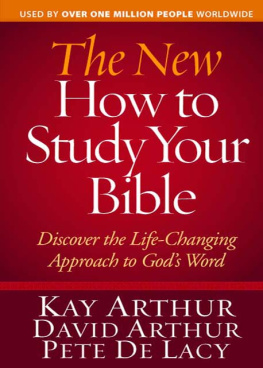
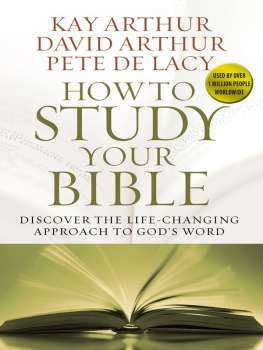


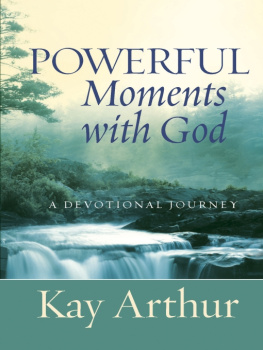

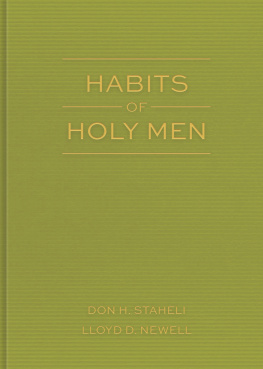
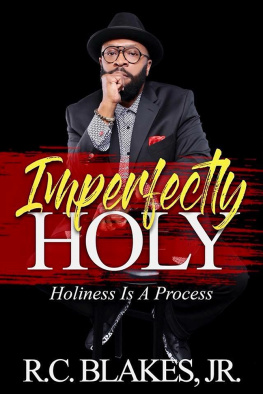
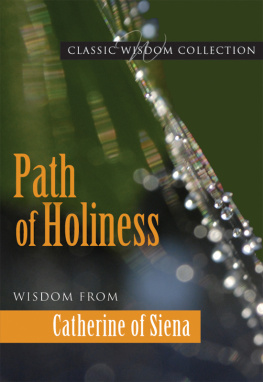

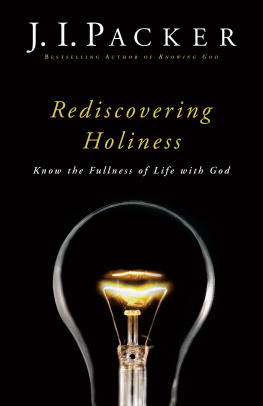
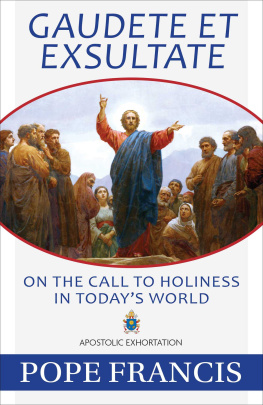
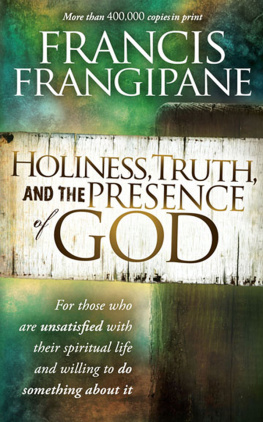
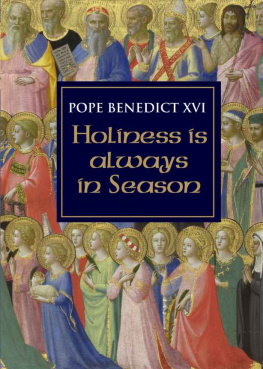
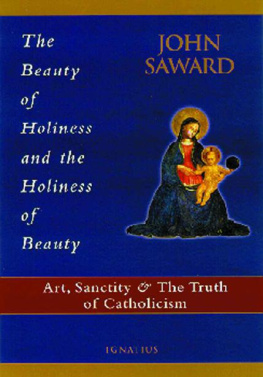
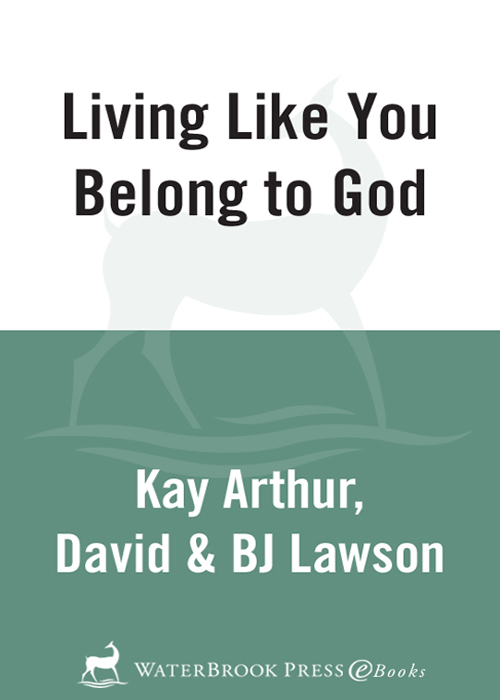
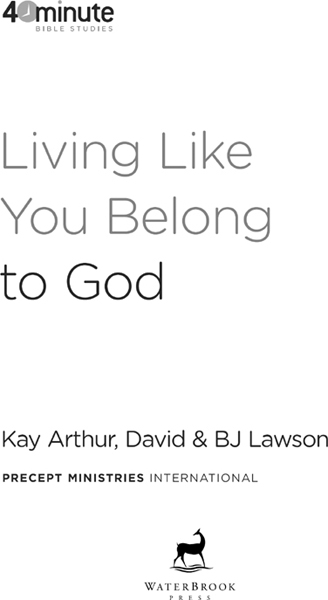

 around the wordseparated.
around the wordseparated.